Over the past several years, I’ve had the opportunity to help thousands of people not only lose weight but to keep it off long-term.
Along the way, I’ve also been able to help a number of people lose between 50 and 100 pounds.
I consider this a bigger accomplishment than helping someone lose just 10-20 pounds because once you get into the 50+ pounds to lose category, weight loss becomes much more difficult.
As I’ve helped these people lose weight, I’ve found that there are a number of issues and obstacles that this particular group of patients faces and that is exactly what I want to explore today.
We will be discussing how quickly you should be losing weight and other tips and tricks to help you stay the course so that your expectations are on point.
Rapid Weight Loss is Unhealthy
I get it.
Being overweight is not fun at all. It can influence your self-esteem, it can cause depression/anxiety, and it can result in extra stress that you don’t need or want.
All of these things are not even taking into account the fact that extra weight, especially in the 50+ category, negatively impacts both your hormones and your overall health.
Because of this, it’s only natural that you would want to be as aggressive as possible to get your weight down.
And with all of the diets available to you, it can look like a literal buffet with many options promising amazing results within just a few weeks.
Diets such as the hCG diet suggest that you can lose 1-3 pounds per DAY.
If you are someone struggling with weight loss then, of course, this proposition is going to be very appealing.
But there’s a catch and a big reason why you shouldn’t fall victim to these types of diets.
Why?
Because they actually cause more harm than good to your body.
While it is true that they MAY (emphasis on may) help you lose that weight initially what they fail to tell you is that the vast majority of people (we are talking about 98%+ here) gain all of the weight that they lose within a period of 6-12 months.
In addition, they never talk about the potential negative consequences to your thyroid (1), other hormones (2), and your metabolism (3).
And, when you think about it, if you are overweight and seeking to lose weight, what you really want is to get back to normal and stay there.
You don’t want to simply lose weight for a short period of time to only gain it all back.
I’m not going to talk about the negative consequences of dieting in this article but I would encourage you to read all about them here.
Instead, I want to focus on what you should expect when you lose weight the right way.
The safe way will result in you not only losing weight at a sustained rate but one which will allow you to keep it off long-term.
What is a Safe Rate to Lose Weight?
So, how much weight should you expect to lose if you are doing it the same way?
And, by the way, the safe way that I am referring to is not overexercising and undereating.
Instead, it’s a comprehensive weight loss plan which addresses the underlying causes of obesity including:
- Hormone management (with a focus on your thyroid, insulin, and leptin)
- Diet management (which focuses on providing nutrients and macromolecule ratios that fit your body, activity, and sensitivities)
- Evaluation and management of stress hormones and cortisol
- Addressing sex hormones such as menopause, low testosterone, andropause, estrogen dominance, and low progesterone
- Exercise routines that are targeted to your body
- Focusing on metabolic rate and therapies which can enhance or normalize your metabolism
- Eating schedules with prolonged and intermittent fasts
- Using specialized prescription medications for a short or intermediate amount of time to enhance your weight loss therapies
But back to the question:
What is a healthy amount of weight that you can lose which promotes sustained weight loss long-term?
The answer that I’ve come up with is around 5-10 pounds per MONTH.
This is a very rough estimate, but one that I find to be true for probably 90%+ of people.
So, why the variation between 5 and 10 pounds?
The reason for this variation has to do with several factors and where you fit in.
The more weight you have to lose the more likely you are to lose more weight each month.
The worse your hormone imbalances are (how severely leptin resistant your body is) the slower you will lose weight.
The older you are the more difficult it is to lose weight.
Do you have a history of dieting several times in your life? If so, you can expect this weight loss to be slower than someone who hasn’t.
And so on.
All of these things influence the 5 to 10 pounds that you can lose each month.
You may read this and be a little depressed, but don’t be.
Let’s just do the math for a second.
Let’s say that you have 60 pounds to lose.
If you are like most people, you may have a goal to lose 60+ pounds within a matter of months to get ready for a big vacation or something similar.
But this sort of mentality can actually be damaging because it may push you to do things that are not healthy for your body.
Things such as dramatically reducing your caloric intake to 500-800 calories per day or exercising for 1-2 hours each day.
These things are NOT what you want to be doing even though you want the results faster.
If you did this, you may lose some weight, but I can almost guarantee that 6 months later you will have gained it all back.
Instead, let’s assume that you were able to lose a steady 6 pounds each month.
This 6 pounds is on the lower end of the range that I gave you previously and I’m putting it here to be conservative.
With some simple math, you can see that over the course of 10 months you would have lost all of your 60 extra pounds of weight and the chances of you keeping them off are incredibly high.
10 months is really not that long in the grand scheme of things and it will be well worth it in the end.
So, instead of opting for that crash diet focus instead of the list of therapies I mentioned above.
They may result in slower weight loss than you want, but they will be lasting.
This isn’t an article about how to lose weight, by the way, but you can click the links above to read more about the various therapies that I think are best for weight loss.
8 Tips for Weight Loss
There’s one thing that I’ve found to be true with most people who want to lose 50-100 pounds of weight.
They not only have a physical journey ahead of them but they also have a huge mental journey as well.
And I find that it’s this mental journey that is most likely to derail their progress, especially as they do therapies (if you follow my recommendations) that are not “standard” or “conventional”.
Along this journey, you are much more likely to fall off the bandwagon as you become eager for better results.
Instead of doing this, remember these tips (and refer to them as often as you need!).
#1. Have Patience
The weight loss game is a marathon and not a sprint.
As humans, we always want to sprint our way to the end but the reality is that losing weight (and many other things in life) is more akin to a marathon.
In a marathon, you need to spread out your effort evenly throughout the journey.
If you front-load all of your efforts into the first month of your weight loss journey then you may be lacking in the following months as things get harder.
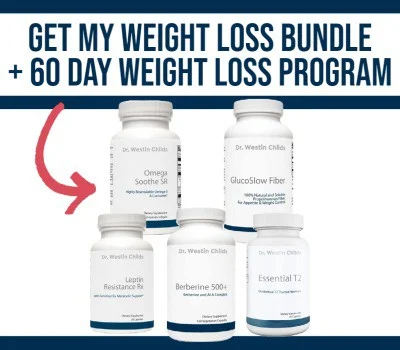
This is really just human nature, especially when it comes to weight loss.
You want your results as soon as possible and I completely understand, but putting all your energy into the beginning can be damaging to your long-term success.
Instead, understand that a normal amount of weight to lose each month is around 5-10 pounds.
Keep this number in your mind and let it help keep you on track.
#2. Understand your Body is Unique
Another thing you need to be aware of is the fact that you are unique.
This means that your body and your results will be different from any other single person.
Your hormone levels are different, the amount of stress that you are under is different, your metabolism is different, the foods that your body needs are different, and so on.
Each of these factors plays a role in how much weight you will probably lose each and every week.
You can easily get derailed as you look at other people and compare your results to theirs.
You are not them and there are so many factors that influence your weight that there really is no way for you to understand why they are losing weight as fast as they are unless you have access to their medical history and lab tests.
Remember:
Comparing yourself and your results to others, unless you have a perfect picture of what is happening, will most likely do more harm than good.
Be happy with your results and stay on your own journey.
#3. Be Consistent
This should almost go without saying but it’s something we should touch on.
If you want long-lasting results then you must be consistent.
Consistent means following your program to the T and doing the things you need each and every day.
The good news is that losing weight at a slow and steady rate is probably not as hard as you think but the bad news is that you MUST be consistent for a longer period of time.
It’s pretty easy to be consistent over a 1-2 month period.
But can you be consistent each and every day for 5 months straight? What about 9 months?
The people who get the long-lasting results that they want, have to be able to be consistent over this time period or even up to 12 months (depending on how fast you can lose weight).
#4. Trust the Process
This is really only true for those people who are doing the therapies that I’ve listed here or in my weight loss guide.
I personally know and have experienced people who want to lose weight but who are so ingrained with the current dogma that they just can’t break away from anything other than eating less and exercising more.
It can be difficult to trust a process that you don’t fully understand but I can assure you that the recommendations that I make do indeed work.
They may be different from the current obesity treatment paradigm but they have been used by thousands of patients to date with great success.
It’s easy to doubt something that you don’t completely understand or that you feel is different but it’s very important for you to trust the process and to see it through.
As you do this you will find that it’s easier to stay consistent over the long term which will lead to lasting results.
#5. Troubleshoot As you Go
It would be silly to assume that you are not going to run into any hiccups or problems along the way.
If you are losing 50-100 pounds then you can expect that you will hit at least 1-3 weight loss plateaus.
These plateaus usually manifest as a wall in which it feels that you simply can’t lose any weight with your current therapies.
There are ALWAYS ways to break through plateaus and I’m speaking as someone who has personally helped many people do it.
There are many reasons for weight loss plateaus but I’ve found that you can break through them by changing up your hormones, altering your medications, adjusting your diet, changing your exercise routine, and so on.
When I treat people and help them lose weight, I find that the majority of what I do is simply troubleshoot and help guide people to figure out what is wrong.
The only advantage that I have is the fact that I’ve helped hundreds of people lose weight so I have more experience than most.
But there is enough information on my blog and website to help most people break through these plateaus and to troubleshoot.
#6. Find the Foods (& Diet) That Work for You
There are many different types of diets available to you and the truth is that many of them are actually quite good.
As an example, you can potentially lose weight on any of the following diets:
- Whole 30
- Ketogenic diet
- Paleo diet
- Low fodmap diet
- Whole food diets
- Low carb diet
But notice that I said potentially.
Even though these diets have the potential to help you lose weight you still must adjust them and tweak them to fit your body.
For instance:
You might find that the ketogenic diet works okay for you but your body does better with more protein than fat and slightly more carbs.
This may put you out of ketosis and not technically on the ketogenic diet but, by using this diet, you found something that works for you.
Don’t be afraid to adjust or tweak your diet or the foods that you are eating until you find something that works well for you.
The foods that you eat should make you feel GOOD (not bad) and you can use this as a basic way to determine if you are on the right track.
This isn’t a perfect way to find what foods you should or shouldn’t be eating, but it’s a great way to start.
#7. Don’t Weigh Yourself Daily (But do track results)
It’s important to track your results but it’s also important to avoid being obsessed with the scale and with your weight.
This can be a difficult habit to break, especially because some people are so consumed with the number on the scale.
But there’s a big problem with that number.
It isn’t always accurate.
That number on the scale can be influenced heavily by water weight, bloating, and even muscle mass.
For instance:
It’s possible, and I’ve seen it many times, for the scale to stay the same even if you are actually losing fat mass.
In many cases, fat loss is also accompanied by muscle gain (4), and these two things can sometimes offset one another.
And it’s actually a good thing.
So, while it’s important to track your progress, it’s also important not to become obsessed with tracking it.
Instead of focusing on the scale, focus on other things such as your measurements.
Measurements, in combination with your scale, can give you a much better picture of what is happening to both muscle mass and fat mass along your weight loss journey.
They aren’t perfect, but together they are much better than just the scale alone.
Try not to retest or measure these things more than once a week.
Keeping track of them is important because it can help you make changes or iterate on your therapies, but checking them shouldn’t be something that you obsess over.
#8. Use your Results to Build Momentum (Not to bring you down)
Lastly, you want to make sure that your results are uplifting and something that can help keep you going.
It’s going to be very encouraging to see your measurements improve and the scale decrease each and every month.
This should help propel your momentum and help keep you consistent.
But what if you don’t see the results you want?
That’s okay too!
It’s a good thing because it means that there is something you can change or iterate on.
Don’t let a plateau or slowing of your progress bring you down or change your mood.
If you do, you risk derailing your progression and momentum.
Instead, look at these situations as an opportunity to improve and learn.
The more you face them the better you will be in the future as problems arise. And I can promise you, that they will arise so it’s best to learn to deal with them as they come.
Conclusion
The safe ‘rate’ that you should be looking for, especially if you have 50 to 100 pounds or more to lose, is around 5 to 10 pounds per month.
This safe rate of weight loss will allow you to maintain your metabolism (while hopefully improving it) and will not wreak havoc on your existing hormones such as your thyroid function (5).
It will also allow for sustained and long-lasting weight loss.
In order to get these results, I would encourage you to check out the various articles I have on weight loss and dieting on my blog. You can also find more information directly in my weight loss guide about my approach to weight loss.
But now I want to hear from you:
Are you someone who has 50 to 100 pounds or more to lose?
Have you had success in the past in losing weight and keeping it off?
If so, which things worked for you? Which things didn’t?
Leave your comments or questions below!
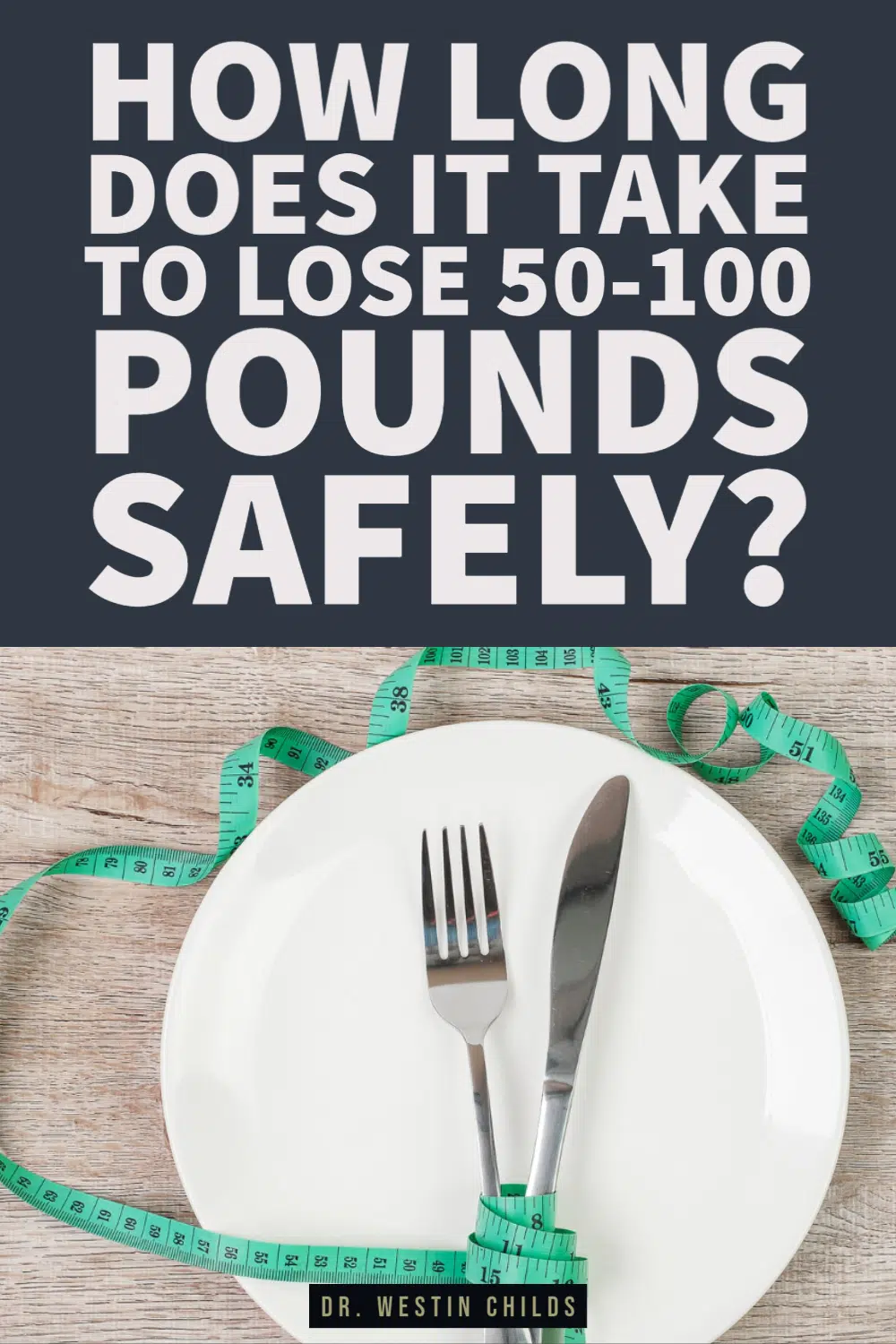
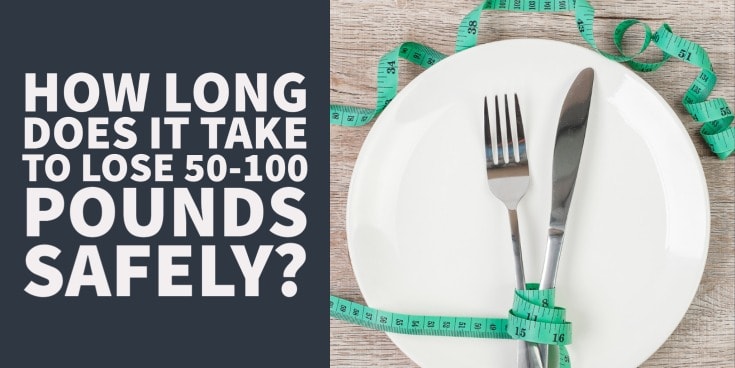
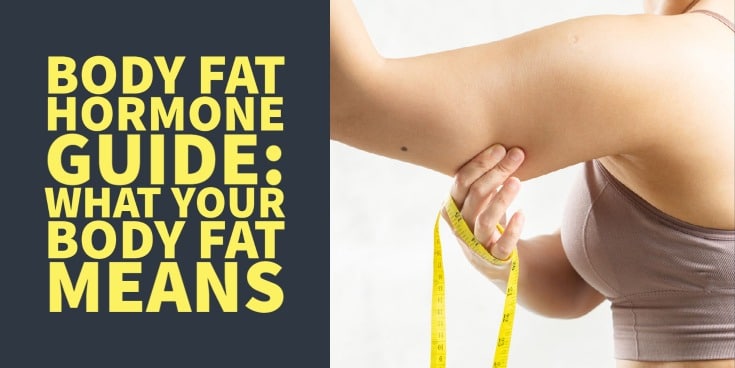

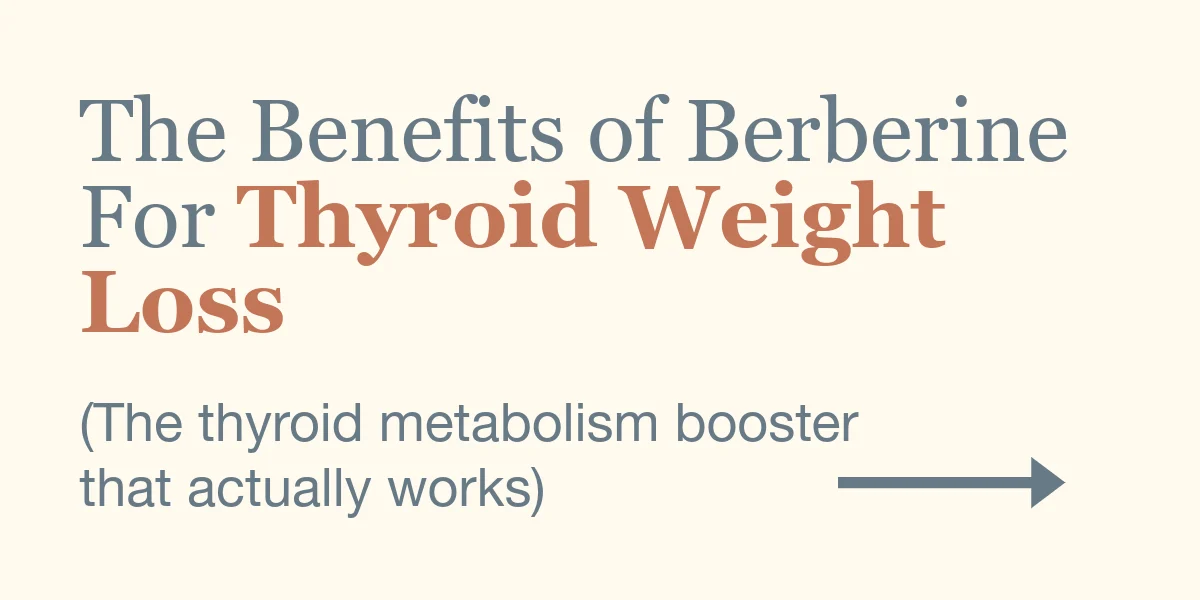
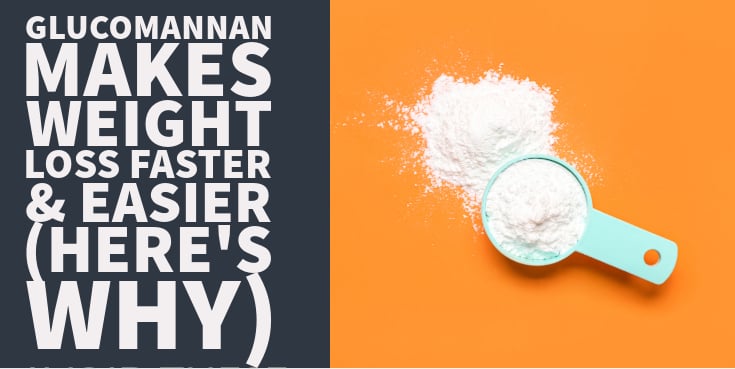
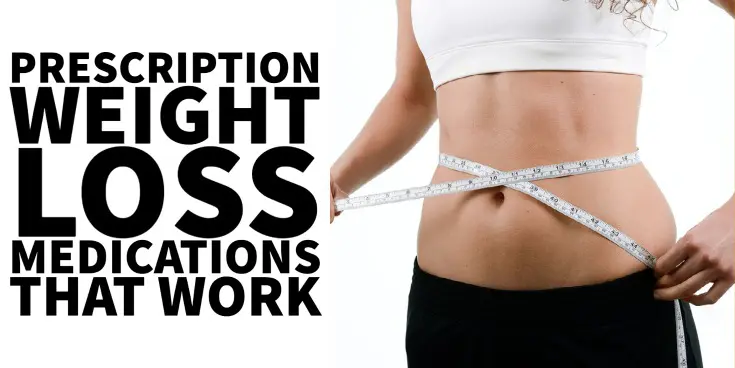
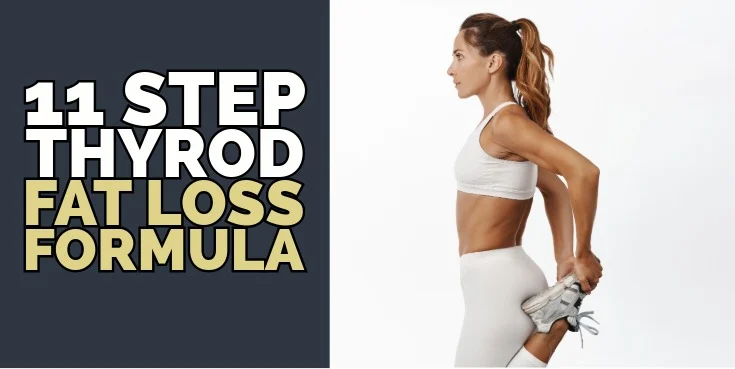

Hello doc, I am 23 years old and I have subclinical hypothyroidism. The problem is, my TSH keeps fluctuating and I don’t know why. I am also fairly sure that I have adrenal fatigue ( I did the pupil contraction test ). Do you think maybe my adrenal fatigue is causing my subclinical hypothyroidism and abnormal TSH? Wouldn’t this also explain the millions of people of young age suffering from hypothyroidism? Since we live in the most stressful times in history?
Hi Jerry,
It’s likely that it may be contributing but is probably not the sole cause. And stress certainly plays a role in the development of hypothyroidism and even autoimmune thyroiditis.
Hello dr Childs, thanks for the response. My ANTI-TPO and ANTI-TG are both low but my RT3 is 19. I’ve read your article regarding RT3 but is there anything else to do except consuming pure T3 like cytomel to lower RT3? Could for example, DHEA and progesterone play a role since they are both protective?
Hi Dr. Childs,
I am from the U.K. and my Dr’s say I don’t have a Thyroid issue I have all the symptoms and an 80 pounds weight gain in 18 months family history etc my TSH is all they look at and mine was 3.8 last check.
I am 46years old and my Dr wants to give me HRT, what’s your opinion in HRT pills?
Thank you.
Kelly,
Hi Kelly,
It’s hard to say without more information and tests. I would recommend that you get the tests listed in this article: https://www.restartmed.com/thyroid-tests/
Hi Dr. Childs
I have an underactive thyroid and have been prescribed 75mg of Levothyroxine. I have done nothing but gain weight I have easily put on 2.5 stone.
Also, I am 54 years old and I am postmenopausal not pre and have lost complete sexual drive do not get the urge at all don’t know if that’s anything to do with a thyroid issue or menopause or both.
Before I began Levothyroxine medication I was always tired and could easily sleep all day and night. I still get tired but it is not as bad as it was and my memory declined and ended with brain fog.
Now, as long as I can get sufficient sleep the brain fog is okay. I work shifts I am fine on the late shifts but the early morning shifts I do struggle and have to go bed soon as I finished the shift. I have noticed my concentration is not what it used to be.
My weight has been predominantly gained around my chest and the stomach area.
I see the specialist and he just ups my dose from 50 to 75mg levothyroxine medication. Also, the blood test shows that I have high cholesterol along with arthritis. I did have low vitamin D that’s been sorted out.
I have osteoarthritis in my toes but I get pain in all of my foot if I do any walking. The blood tests have shown arthritis in my body that could explain the pain in the wrists and knees.
I am at my wit’s end with these health dilemmas don’t know how to deal with all of the above, let alone where to begin.
Hi Jerry, I need to lose 50 pounds. I live in South America. How can I get your products?
Hi Elviera,
We ship internationally to all countries. If weight loss is your primary goal then be sure to also check out my weight loss program which includes much more information than just what supplements you should be taking.
I will check with my GP as I have just had a test done, will ask if I can have t3 as I’m gaining too much weight. Will push hard for it. Thank you will get back to you, Judith.
Hi Judith,
Sounds good! Good luck and keep us updated.
How often do you see folks with this pattern and what might it mean:
high TSH (in the 6-8 range)
high FT3 (in the 4.2-4.5 range)
normal FT4 (typically 1.2-1.4)?
highish RT3 (usually 20-23)
All antibody tests are negative. But a thyroid ultrasound shows scarring and atrophy.
These are the non-medicated base results for my son who was 19 at the time. This testing pattern was confirmed multiple times before treatment.
As you might guess he is obese.
He actually has a confirmed hypothalamic disorder diagnosed by doctors at the NIH and is partial hypopit (he replaces GH and testosterone). But NIH didn’t comment much about his thyroid treatment and I’m still trying to figure it out with our endo.
His thyroid treatment began with Levothyroxine. We tried different doses and he noticed nothing.
About a year ago he was switched to T3 only thyroid meds even though his FT3 is always high. This has lowered his RT3 considerably but he still notices no functional improvements. He also has no hyperthyroid symptoms.
It seems as if thyroid meds don’t affect him at all. This is not true for GH and testosterone injections— he notices clear differences from both of those.
Any thoughts?
One more interesting side note. He does have “hypothalamic obesity” — which caused him to be hungry all the time leading to binge eating. We have experimented with treatments under his endo’s care) and have had shocking success with hydroxyzine and a flavonoid supplement that can cross the blood-brain barrier. These were given to bring down histamine and inflammation in his hypothalamus from possible mast cell activation. Shockingly they have controlled his constant hunger. He’s lost 55lbs in 6 months.
I know he’s not a typical case, but I have a strong suspicion that treatments that can cross the BBB to target inflammation might help others as well one day.
Hi Dr. Childs,
I had a complete thyroidectomy a year ago. In the months following the surgery, I gained about 30 lbs. It took a while to get my medication sorted out and I was exhausted for a very long time. I am feeling better and need to lose this 30 lbs. I would love for you to look at my labs and create a plan for me to follow so I can get my health back on track. I am currently taking 125 mcg Levothyroxine and 5 mcg of Liothyronine. I am 55 years old, eat very clean diet and exercise on a treadmill daily. I am from the San Francisco Bay Area and would come to Arizona if you’d be willing to meet with me.
I hate myself. This is not my body I will kill myself if I don’t lose this disgust fat! I am on only 5 mg of methimazole n eat no breakfast or lunch train horses off the racetrack 4/5 times a week n sill I am 20 pounds over weight. A family member made a joke that I looked 179 odd! I am 5’7” n 153 bloated disgusting stomach muscular legs n arms but my arms are twice the normal size. I used to be skinny!!! N now I have big breasts that I hate n try to push them in. A customer made a remark that o must know when it’s dinner time!! N my friend called me Voluptuous!!! I am an athlete not a porn star don’t know how much less I can eat! Or exercise any harder but if I go off med I will have more palpitations
Extremely depressed
Hi Sally,
Please see this post regarding weight gain on methimazole. The key to losing weight is to try and get off of methimazole as quickly as possible! https://www.restartmed.com/methimazole-weight-gain/
Hi Dr.
I have a good 130 pounds to lose. My Dr just started me on 50mg naltrexone, but I don’t know what meal plan I should do. I have had success on Atkins, south beach, weight watchers but in the end gain it all and then some back. I read you post about intermittent fasting and I think bitch can do two a week.
What’s more important calorie count or type of calorie. At 56 yo this is now a battle to live.
Thank you
Hi Bill,
Calorie quality will always trump calorie quantity even though they are both important. If you focus on calorie quality and use intermittent fasting then the calorie quantity component is already managed. The hardest part for people to wrap their heads around is calorie quality which is what most people should focus on.
I’m 5’9″ and now weigh 215. I take 100.mcg of Levothyroxine and 15 mcg of NPThyroid. I feel awful and I cry all the time. They can’t get me regular, they watch the tsh level. I was taking 150 of.levo and 15 of NP thyroid. My hair was falling out and my pressure was high. Now all I do is cry and look at all the belly fat. I look like the picture! HELP!
Hi Carmen,
Please see these case studies which show you exactly how other thyroid patients have been able to lose weight and what treatments they required:
https://www.restartmed.com/weight-loss-naturethroid/
https://www.restartmed.com/weight-loss-hypothyroidism-success/
https://www.restartmed.com/diabetes-reversed/
https://www.restartmed.com/thyroid-weight-loss/
https://www.restartmed.com/victoza-weight-loss/
https://www.restartmed.com/adding-t3-ndt/